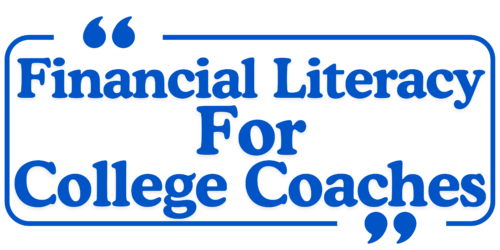How to Negotiate a College Coach Contract: A Comprehensive Guide
Negotiating a college coach contract can be a pivotal moment in a coach’s career. Whether you’re a newly appointed coach or looking to renew your existing contract, understanding the nuances of contract negotiation is essential. Here’s a comprehensive guide to help you navigate the process effectively.
1. Understanding the Landscape
Before diving into negotiations, it’s vital to understand the college athletics landscape. Factors such as the school’s budget, the athletic department’s goals, and the competitive nature of the sport can significantly influence contract terms. Research your specific sport and the compensation structures at comparable institutions to establish a baseline for what you can expect.
2. Know Your Worth
Your value as a coach is determined by various factors, including your experience, past performance, and the reputation you’ve built in the field. Consider the following when assessing your worth:
- Coaching Record: Highlight your successes, such as winning seasons, championships, and player development.
- Networking: Strong connections with high school and junior college coaches can help recruit top talent, enhancing your value.
- Professional Development: Continued education, certifications, and involvement in coaching associations demonstrate your commitment to growth.
3. Prepare Your Objectives
Before entering negotiations, outline your objectives clearly. Consider what you want in the contract beyond just salary. This may include:
- Base Salary: What is your desired salary range?
- Incentives: Performance bonuses for winning games, advancing to playoffs, or achieving specific goals.
- Benefits: Health insurance, retirement plans, and other perks.
- Duration: The length of the contract, including renewal options.
- Termination Clauses: Conditions under which either party can terminate the contract.
4. Research Comparable Contracts
Benchmarking against other coaches in similar positions is crucial. Analyze contracts of coaches at peer institutions to identify trends in salary, benefits, and contract terms. Websites like USA Today’s database on coaching salaries can provide valuable insights into compensation packages across the country.
5. Establish Your Leverage
Leverage can come from various sources. Consider the following strategies to strengthen your position:
- Current Success: If your team is performing well, leverage that success to negotiate better terms.
- Competing Offers: If you have other job offers or interest from other institutions, use that to your advantage.
- Institutional Needs: Highlight how your coaching style and philosophy align with the institution’s goals, making you a valuable asset.
6. Build Relationships
Contract negotiations are not solely about the numbers; they involve relationships as well. Establish rapport with key decision-makers, such as athletic directors and university administrators. Building a positive relationship can create goodwill and potentially lead to more favorable terms.
7. Be Professional and Transparent
Approach negotiations professionally. Be clear about your expectations and articulate your value without sounding arrogant. Transparency about your goals and objectives fosters trust and can lead to a more collaborative negotiation process.
8. Consider the Entire Package
When reviewing a contract, evaluate the entire package rather than just focusing on salary. Look at the benefits, incentives, and other non-monetary aspects that can significantly impact your overall compensation. For instance:
- Support Staff: The availability of assistant coaches, trainers, and support staff can enhance your effectiveness.
- Facilities: Access to state-of-the-art training facilities and resources can influence your coaching success.
- Recruitment Budget: A robust recruitment budget is essential for attracting top talent.
9. Negotiate for Development Opportunities
Incorporate professional development opportunities into your contract. This could include funding for coaching clinics, conferences, and continuing education. These opportunities not only enhance your skills but also demonstrate your commitment to the program’s success.
10. Seek Legal Guidance
Consider consulting with a lawyer specializing in sports law or contract negotiations. A legal professional can help you understand the legal implications of contract terms, identify potential pitfalls, and ensure that your interests are protected throughout the process.
11. Be Prepared to Walk Away
While it’s essential to approach negotiations with a positive mindset, be prepared to walk away if your needs are not met. Understanding your non-negotiables and being willing to explore other opportunities can empower you during the negotiation process.
12. Close the Deal
Once an agreement is reached, ensure all terms are documented clearly in the contract. Review the final document thoroughly, and do not hesitate to seek clarification on any ambiguous terms before signing.
Conclusion
Negotiating a college coach contract is an intricate process that requires preparation, research, and effective communication. By understanding your worth, establishing clear objectives, and being professional throughout the negotiation, you can secure a contract that reflects your value and supports your career aspirations. Remember, a well-negotiated contract not only benefits you but also sets the foundation for success within the athletic program you represent.
Written by Pat Brown, MBA
